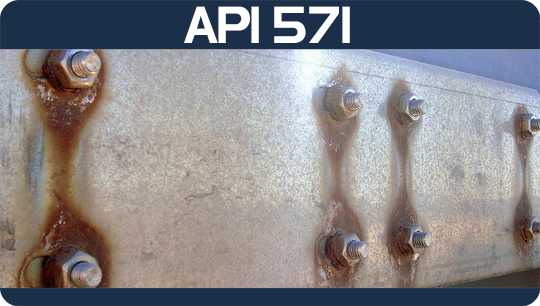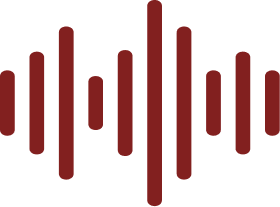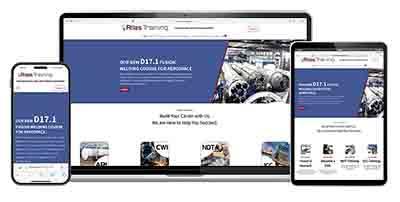Atlas API 571 Training Course: Corrosion and Materials
Online training for the API 571 Exam: Corrosion and Materials

Included in the API 571 Online Training Course:
$ 799 .00
- 30 hours of Online Preparation
- Over 390 Practice Questions
- Timed Practice Exams
- Practice Quizzes with Instant Feedback
API 571 Training Course:
Corrosion and Materials
Atlas Training™ offers online exam prep training for all areas of API.
Online training for the API 571 Exam: Corrosion and Materials.

API 571 Online Training Course$
- AWS Accredited for 30 hours toward the AWS retest or 9-year renewal.
- The Atlas curriculum focuses your attention on the correct material.
- Professionally developed narrated courses created by our field experts.
- Instructor support is available when you need help.
- Online convenience lets you set your own schedule and study at your own pace.
$799
API CPD'S
Take a look at our courses today!
User Reviews
What our students have to say about our courses
"I gave it a shot and I wasn't disappointed"
"A lot of people recommended that I try the Atlas program. I gave it a shot and I wasn't disappointed. They really helped me narrow down what I needed to study, and focus in on the important information. Thanks to Atlas for being a convenient and affordable option."
-Marc Weidner - Phoenix, AZ
"All of the programs are really engaging"
"All of the programs are really engaging to the student. Having the ability to study everything online is just, a plus! I can say that if it wasn't for the course being online, I would not have been able to pass the exam without going to a forty-hour course. I would have been out of pocket at least $4,300 for the course and hotel etc. I recommend all of Atlas' training to all my co-workers."
-Graeme Rand Jr
"Passed on the first attempt!"
"Passed the test on the first attempt! The training was absolutely invaluable. You may see from my training records that I completed only 80% of the course. It's just that good! Thank you!"
-Brian Pridemore
"I will definitely recommend this course to fellow inspectors"
"The fact that the course is online, makes it super convenient for someone who is not able to attend a classroom setting. The Quiz bank and practice exams were extremely helpful as well as the audio flashcards. I will definitely recommend this course to fellow inspectors."
-Stefan Robijns - Belgium

6 Month Access to the Course
Study on your own time, review over and over.

Atlas Audio Flashcards™
Listen and study during your morning and evening commute.

Visual & Narrated Online Curriculum
You learn better when you can see, read and hear the course material.

Timed & Simulated Exams
Take simulated exams before taking the real thing.
Money-Back Guarantee




